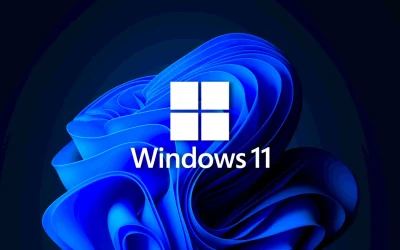IT Consulting, Service and Management
Our decades of implementation and integration experience allows us to deliver best-of-class IT services to our customers
Security and Endpoint Protection
Defend your networks from active adversaries, ransomware, phishing, malware, and more.
Data Continuity
Backup and recovery services are a necessity for todays modern networks. We can help to determine where and when your data needs to live to be sure it's always available
Cloud Services
With so many options and implementation scenarios available, let us help you determine how best to use new services available from the cloud.
Technology services dedicated to bridging the gap between technology and your business
Since 1996, our mission has always been to help our clients maximize productivity and efficiency by expertly maintaining existing infrastructures, as well as designing and implementing new technologies, allowing them to continue growing into the future.
- Knowledgeable and friendly staff
- Flexible consumption-based pricing models
- Online strategy and consulting services
- Decades of experience
News, updates, trends and the latest
info you need to know about IT
March 5, 2026
Overview
The Rakuten Viber messaging app for Android V25.7.2.0g and Windows V25.6.0.0-V25.8.1.0, has a flaw in its TLS handshake implementation when using the Cloak proxy configuration. This flaw allows for easy identification of proxy usage, potentially compromising user anonymity.
Description
Rakuten Viber can be configured to use a proxy server. Multiple proxy configurations, including Cloak, are supported. Rakuten Viber in Android V25.7.2.0g and Windows V25.6.0.0–V25.8.1.0 exhibits a flaw in the TLS handshake implementation for Cloak mode. Cloak mode is designed to hide the fact that a proxy or VPN is in use.
However, the Cloak proxy mode has a rigid and easily identified fingerprint, making it trivially identifiable by Deep Packet Inspection (DPI) systems. This allows networks to block Viber traffic, undermining the app’s ability to circumvent censorship and potentially leading to denial of service in certain cases.
Impact
The Cloak-mode proxy traffic fails to hide the use of a proxy. The outgoing data is easily identifiable due to the rigid fingerprint and no longer appears to be normal browser TLS behavior. The user has no indication the proxy is not protecting their data.
Solution
Windows users should upgrade to V27.3.0.0 or later, and Android users should upgrade to V27.2.0.0g or later.
For continued support, Windows users can implement automatic updates for Viber.
Acknowledgements
Thanks to the reporter Oleksii Gaienko, an independent security researcher. This document was written by Laurie Tyzenhaus.
March 2, 2026
Overview
A command injection vulnerability was identified in the MS-Agent framework that can be triggered through unsanitized prompt-derived input. An attacker can craft untrusted input introduced via a chat prompt or other external content sources, resulting in arbitrary command execution on the target system(s) where the MS-Agent framework is deployed. No patch or vendor statement was obtained during the coordination process.
Description
MS-Agent is a lightweight framework that enables agents to perform autonomous task execution and tool invocation. The MS-Agent framework includes several features, including a Shell tool that enables execution of commands on the target operating system to complete agentic actions.
A vulnerability has been identified that allows unsanitized input to be executed through the Shell tool. This occurs because the software does not sufficiently verify and sanitize content before execution. As a result, an attacker can leverage prompt injection techniques to influence the agent into executing unintended shell commands when interacting with attacker-controlled content.
The Shell tool relies on regular expression–based filtering in the check_safe() method, which is intended to restrict unsafe commands. The implemented default denylist can be bypassed, allowing crafted input to evade validation checks and reach the shell execution layer.
The vulnerability is tracked as:
CVE-2026-2256
Command injection vulnerability in ModelScope’s ms-agent allows an attacker to execute arbitrary operating system commands through crafted prompt-derived input.
This vulnerability may be exploited when the agent is instructed to process or retrieve external content, such as analyzing code, summarizing documents, or performing other tasks that involve interacting with attacker-controlled data. If the retrieved or processed content contains malicious command sequences that bypass the check_safe() validation, the agent may forward those commands to the Shell tool for execution.
The use of a regular expression denylist in the check_safe() method is insufficient to prevent command injection. Denylist-based filtering is inherently fragile and can often be bypassed through encoding, command obfuscation, or alternative shell syntax. In this case, the filtering logic can be circumvented, enabling arbitrary command execution within the execution context of the agent process.
Impact
An attacker who successfully exploits this vulnerability may execute arbitrary operating system commands on the target with the privileges of the MS-Agent process. This may allow modification of system files, lateral movement within the environment, establishment of persistence mechanisms, or exfiltration of sensitive data accessible to the agent.
Solution
No statement was provided by the vendor during coordination efforts. Users should deploy MS-Agent only in environments where ingested content is trusted, validated, or sanitized. Agents with shell execution capabilities should be sandboxed or executed with least-privilege permissions. Additional mitigation strategies include replacing denylist-based filtering with strict allowlists and implementing stronger isolation boundaries for tool execution.
Acknowledgements
Thanks to the reporter, Itamar Yochpaz, for this report. Document written by Christopher Cullen.
March 1, 2026
Microsoft is rolling out new Windows 11 Insider Preview builds that improve security and performance during batch file or CMD script execution. […]
Contact us today if you'd like to know more
about how we can keep your network working at its best
VistaNet, Inc is a technology consulting and services company, helping enterprises
marry scale with agility to achieve competitive advantage.

